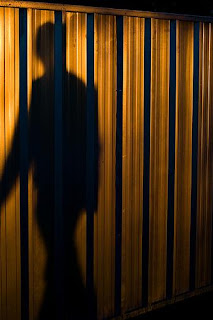
Two weeks ago individuals and organizations across the nation marked National Black HIV/AIDS Awareness Day. Judging by many of the articles, press releases and events commemorating the day, however, you might never guess that the highest percentage of new HIV infections in 2006 was among black gay men.
Why, even on a day dedicated to black AIDS awareness, do black gay men remain a footnote?
“It’s symptomatic of the problem we face of ridding our community of HIV in order to break the back of the epidemic,” said Ernest Hopkins, policy director of the Black Gay Advocacy Coalition. “The most heavily impacted population by percentages is black gay men. If you want to talk about this epidemic you have to start there, and then move very quickly to black women, or you’re not doing your job.”
Two events that got advocates talking were the National Black Leadership Commission on AIDS (NBLCA)’s forums in New York and in Washington, D.C. (the latter included black ministers from the D.C. area).
The New York forum extensively covered women, incarceration and drug use, while gay men and homosexuality were mentioned in passing and only as they related to women being infected by men who have sex with men. The theme of the BLCA event was “HIV/AIDS and Black Women,” but the question remains why, on National Black HIV/AIDS Awareness Day, one of the highest profile African-American groups failed to address the most-affected black demographic.
“A lot of us left the session angry and we weren’t sure why,” said Kristin Goodwin, Housing Works Director of New York Policy and Organzing. “There was nothing wrong on the surface, but it was distressing the way the event made women seem like victims and didn’t even account for gay men who don’t have sex with women.”
NBLCA President C. Virginia Fields told the Update that her speech at the event was intended to be broad-based. “I was focused on the community. I think when you talk about the disease, you talk about all people,” she said, adding that there was particular focus on women and children because “that’s the population I find often does not get mentioned.” Fields also said that “it’s crucial that black gay men be part of the conversation not just around AIDS, but making homophobia unacceptable.”
Celebrity scandalette
Another Black AIDS Day dust-up involved Sexuality Information and Education Council of the United States (SIECUS), which solicited its board member, ER star Gloria Reuben, to write an op-ed for Huffington post about AIDS in the black community and the need for comprehensive sex education.
People were upset because Reuben didn’t mention gay men, or men period, in her piece.
“HIV/AIDS in this country is a man’s disease – about ¾ of the epidemic – most of which is among gay men of all races, and particularly among gay black men and gay Latino men. Not mentioning this fact in one sentence, or even a phrase, is absolutely unacceptable,” Jim Pickett of the AIDS Foundation of Chicago wrote in a message to the Federal AIDS Policy Partnership (FAPP) listserv.
No comments:
Post a Comment